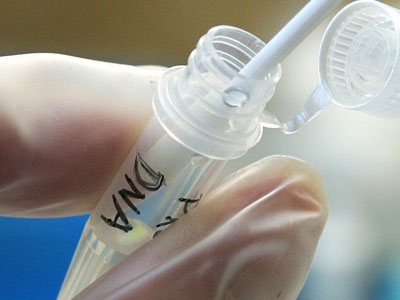
HEALTH Minister Lawrence Springborg is planning laws to protect Queenslanders from genetic discrimination as researchers predict that genome sequencing will transform medical practice.
Mr Springborg said advances in genetics would mean better treatments for many conditions, including cancer, but would also create ethical challenges for legislators as blood tests potentially become a crystal ball for an individual’s future health.
He said laws would be needed to ensure individuals were protected if genome sequencing uncovered a susceptibility to particular illnesses.
Speaking at a forum on genes at the University of Queensland’s Diamantina Institute this week, Mr Springborg said he had recently knocked back an opportunity to have his own genome tested because of concerns it may affect his children’s ability to obtain income-protection insurance.
“I wasn’t prepared to take the risk because my children were going to be in some sort of never-never land if something did actually come back and they were asked if they were aware of anything which may have compromised their insurance,” he said.
Mr Springborg said Australia lacked a “competent legislative framework” encompassing genomic testing and the dilemmas it raised.
“I’ve got a lot of work to do to raise awareness around this – I want to at least try to develop legislation which will be an exemplar for the rest of the country,” he said.
US legislation specifically bars employers from using an individual’s genetic information when hiring, firing or in decisions on job promotions.
Diamantina Institute director Matt Brown said that from next year, Queenslanders would be able to have their entire genome sequenced for less than $1000.
He said the practice would eventually become almost as routine as having a magnetic resonance imaging scan.
“This is going to bring about major changes in all fields of medical practice,” Professor Brown said.
For example, he said DNA sequencing of cancerous tumours was already uncovering genetic drivers that could be targeted by existing drugs.
“There’s going to be a major shift in how cancers are managed and this comes about from the ability to be able to work out what the DNA mutation is that actually causes the cancer,” Prof Brown said.
He predicted the way doctors prescribed drugs would also be revolutionised by genome sequencing.
“The vast majority of drug side effects are related to enzymes that have major genetic variation,” Professor Brown explained.
Source: Courier Mail
